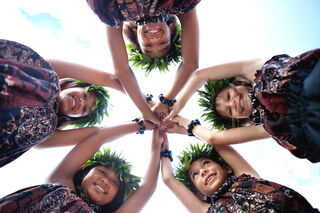Health
Pono: The Hawaiian Key to Health
A state of being that may result in good health and how you can achieve it.
Posted October 20, 2022 Reviewed by Vanessa Lancaster
Key points
- Pono means feeling “right” with a person, yourself, nature, and the world. Ho’ponopono has become known as the Hawaiian forgiveness process.
- Ho’oponopono is a daily practice. It helps you maintain your energy, vitality, and emotional healing.
- The ancient Hawaiians believed that being pono was critical to their physical, emotional, and mental health and that it was always within reach.

In ancient times, Hawai‘i was almost completely devoid of mental and emotional diseases. When you read the earliest writings of the first missionaries and the first visitors to these islands, they reported finding a group of people who were physically, emotionally, mentally, and spiritually very healthy.
Of course, Hawaiians did get sick, and people did get hurt. And health and wellness on all levels were much more common than not.
One of the most important spiritual teachers I have had was Uncle George Na‘ope. He explained that the system in place to facilitate holistic healing at that time was very thorough. He pointed out that the Hawaiians' definition of health transcended just the physical body. This system is known as Huna today, but it is more properly called Ho‘omana, which means to make energy = empowerment.
One of the cornerstones of Huna is the concept of being pono. There is not a really good English translation for the word pono. Basically, pono means feeling “right” with a person, with yourself, nature, and the world in general. It doesn’t mean right, as in “I’m right and you’re wrong,” but rather it’s the sense that you are connected to and in harmony with your environment, your community, your friends and family, and yourself.
You feel at peace. You feel comfortable in your own skin. You feel acceptance and appreciation for everything and everyone. You feel balanced and have a profound sense that all is well. When you feel pono, you are connected to your heart. Your decisions and actions are driven by integrity and awareness of what is good for the whole, not just what is good for you as an individual. Pono is feeling profound respect for everything and everyone and, with it, a deep sense of self-respect.
Pono is not just a characteristic you have or don’t have or a badge you earn once and you’re done. Being pono is an active process of staying aware of who you are in the world. Are you acting in harmony with others? Do your choices reflect your deepest values? At this point, are you being the best self you know how to be?
John Ka‘imikaua, one of my other spiritual teachers who began teaching at our Huna Workshop in the late 80s, said that being pono was not optional for the ancient Hawaiians. It wasn’t some distant state you found only when sitting on your meditation pillow. It wasn’t a feeling you might have every once in a while if the stars align.
Being pono was a basic necessity of everyday life. The ancient Hawaiians believed that being pono was critical to their physical, emotional, and mental health and that it was always within reach. When they did not feel pono, they recognized it as a sign that something was off, and they knew they had to do something to bring themselves back into harmony.
And that something was ho‘oponopono.
Ho’ponopono has become known as the Hawaiian forgiveness process, and I’ve seen several modern abbreviated versions of the process being taught. But ho’oponopono is really much more than the Western concept of forgiveness. It’s not a one-shot process of “getting over” whatever caused you pain so you can feel a little better. It’s not about letting whoever harmed you “off the hook” and removing judgment. It’s a way of life.
Ho‘o means “to make,” so ho‘oponopono means to “make right.” When you double the word pono, you increase its meaning. So, it’s not just tolerating others but being in total harmony with them. It’s not just feeling okay about yourself but feeling deep respect for who and what you are. It’s not just giving lip service to your values but living them daily. It is being right with yourself and others on all levels.
Ho’oponopono is a daily practice, not just a mechanism you use when something goes awry. So why is it called the forgiveness process? Even if something isn't wrong, why is it still called forgiveness? Constant use of ho‘oponopono gives you two gigantic gifts.
The first gift is that ho‘oponopono helps you maintain your energy and vitality. It allows you to disconnect from other individuals who might drain your energy. The people you’re around may not intentionally try to harm you. Yet their energy, needs, and personal agendas can be draining and throw you off kilter. Doing ho’oponopono is like showering and cleansing yourself from all of that.
The second gift is emotional healing. Emotional healing doesn't mean you will never have negative emotions. It means that you have an easier time accessing positive and beautiful emotions and an easier time releasing negative emotions. You won’t have unresolved baggage clogging your emotional arteries. Almost every spiritual teacher on the planet encourages us to increase our experiences of love, joy, and happiness and decrease our experiences of negative emotions to live a more fully empowered life. Ho’oponopono is a powerful way to do that.
Click to receive a free MP3 of the Ho’oponopono process.
Mahalo,
Dr. Matt




